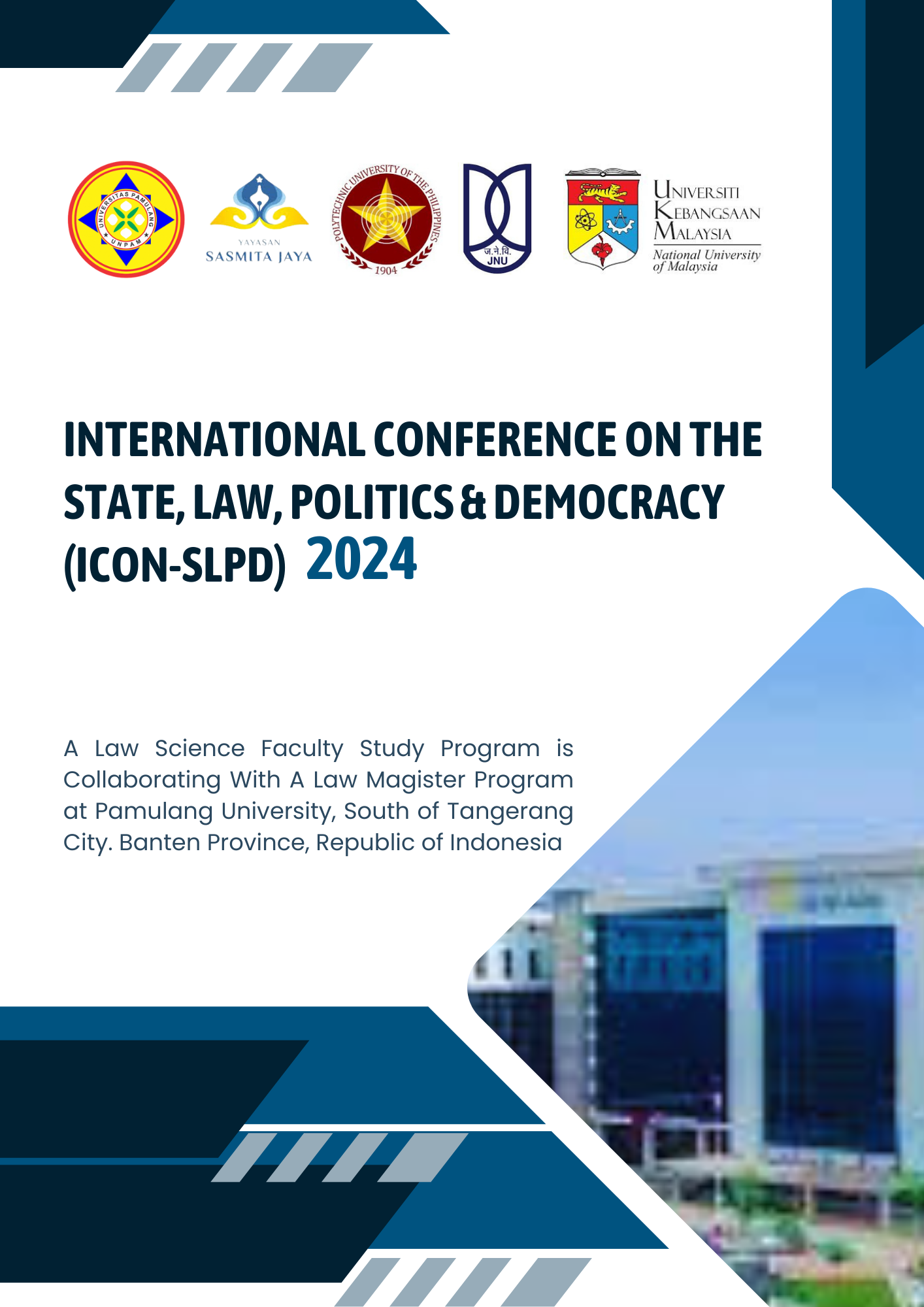Basic Principles Of Dispute Resolution Of Election Results As A Manifestation Of A Democratic State
Keywords:
Dispute Settlement Elections, State Constitutional DemocracyAbstract
Every country in the world, moreover in every country which has implemented the way of life of democcratic and nation, presume that election is one of the important element as a marker of democracy of the country and also has a practical function of government political as a succession’s tool between the government parties and the oposition parties. In every democratic constitutional state, the election process has a purpose to embody will of the people into pattern of power without violence.
The election process will not only be assessed by sticking to the existing legal framework but the laws, codes of conduct of the election and its implementation needs to be tested and adjusted if it is in accordance with its primary purpose or not without ignoring the rights of individuals or people. In the process of the general election, the election process does not always run smoothly. Various obstacles in the implementation of good elections that occurred both during and previous election, is a problem that certainly would have widely spread impact if not immediately resolved. The existence of problems in the election related to dissatisfaction of decision of the election or criminal violations and administrative which can influence the result of election is commonly known by electoral disputes. In order the election dispute does not disturb the constitutional system or system of government of a country or region, it requires an electoral dispute resolution mechanisms that effective and can give a fair decision to the parties.
References
Budiardjo, Miriam, Dasar-dasar Ilmu Politik, Jakarta: PT. Gramedia Pustaka Utama, 2008.
Darwis, Fenita, Pemilihan Spekulatif Mengungkap Fakta Seputar Pemilu, Jakarta: Alfabeta, 2009.
Undang-Undang Dasar Negara Republik Indonesia Tahun 1945.
Undang-Undang Nomor 24 Tahun 2003 tentang Mahkamah Konstitusi, Lembaran Negara Republik Indonesia Tahun 2003 Nomor 98, Tambahan Lembaran Negara Republik Indonesia Nomor 4316.
Undang-Undang Nomor 10 Tahun 2008 tentang Pemilihan Umum Anggota Dewan Perwakilan Rakyat, Dewan Perwakilan Daerah, dan Dewan Perwakilan Rakyat Daerah, Lembaran Negara Republik Indonesia Tahun 2008 Nomor 51, Tambahan Lembaran Negara Republik Indonesia Nomor 4836.
Undang-Undang Nomor 7 Tahun 2017 tentang Pemilihan Umum Anggota Dewan Perwakilan Rakyat, Dewan Perwakilan Daerah, dan Dewan Perwakilan Rakyat Daerah, Lembaran Negara Republik Indonesia Tahun 2012 Nomor 117, Tambahan Lembaran Negara Republik Indonesia Nomor 5316.
Putusan Mahkamah Konstitusi Nomor 74, 80, 94, 59, 67 /PHPU.C- VII/2009 bertanggal 11 Juni 2009.
Putusan Mahkamah Konstitusi Nomor 75/PUU-VIII/2010 bertanggal 31 Maret 2011.
Putusan Mahkamah Konstitusi Nomor 14/PUU-XI/2013 bertanggal 23 Januari 2014.
Aswanto, Focus Group Discussion, “Mewujudkan Pileg dan Pilpres Serentak Yang Berintegritas,” Makassar, Hotel Aryaduta, 26 Oktober 2018.
Gaffar, Janedjri M., Rekonstruksi Kewenangan Mahkamah Konstitusi Dalam Menangani Perkara Pemilihan Umum Untuk Mewujudkan Pemilihan Umum Yang Demokratis Dalam Perspektif Hukum Progresif, Disertasi, Universitas Dipenogoro Semarang, 2013.





